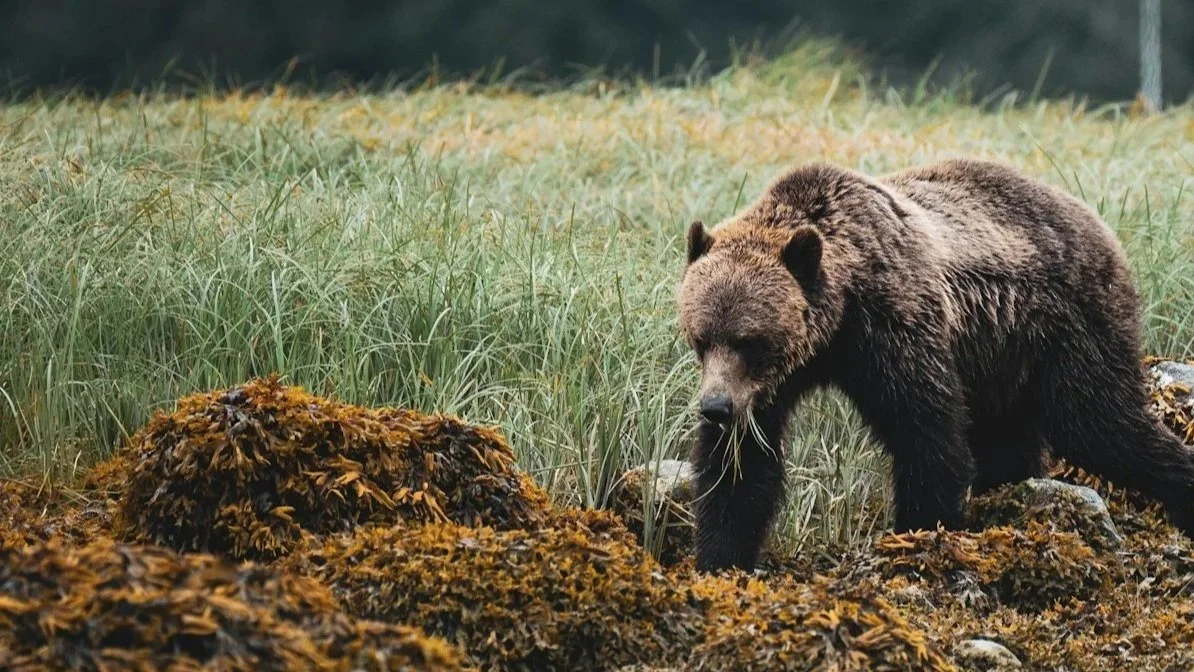
SUBMIT A LTE
Use your voice to keep grizzly bears protected and to push back on misinformation. Letters to the editor are one of the fastest ways to reach decision‑makers and your community. This page walks you through what to write, where to send it, and how to make it count.
WHY LTES MATTER
Editors read them. Lawmakers’ staff compile them. Community members talk about them. A steady drumbeat of short, local letters shapes public opinion and signals that people in your town want science‑based, humane grizzly policy.
WHAT TO WRITE
Keep it local. Start with a clear connection to place: your town, nearby forests, a recent local article, or an upcoming meeting. One sentence of local context can double your chance of publication.
Stay concise. Most outlets want 150–250 words. Aim for 180–200 unless the outlet says otherwise. One idea, one story, one clear ask.
Make a specific ask. Tell leaders and agencies exactly what you want (e.g., oppose delisting, oppose recent legislation, reject trophy hunts, invest in coexistence tools, follow best‑available science).
Write like you talk. Simple, direct sentences. Avoid jargon and acronyms. You don’t need citations in LTEs; if you reference data, attribute it in plain language (for example, “state biologists,” “U.S. Fish and Wildlife Service”).
LOCALIZE IT
Answer two or three of these in a sentence or two each:
Where do you live and what public lands or waters connect you to bears?
What recent news, agency proposal, or local event prompted your letter (e.g., House markup of H.R. 281)?
How have you or your community used coexistence tools (bear‑resistant trash, electric fencing, hazing, carcass pickup)?
What is one concrete action you want leaders to take?
STRUCTURE
Hook (1–2 sentences). React to a recent story or open with a local fact or personal scene.
Core point (3–4 sentences). State your main argument and one supporting example.
Specific ask (1–2 sentences). Name who should act and what they should do—e.g., “Congress must reject H.R. 281/S. 316.”
Close (1 sentence). Reaffirm values and restate why this matters where you live.
Please edit these samples to reflect your own voice, and you can incorporate different talking points to help make your letter more unique.
LTE SAMPLES
100 words (when space is tight)
Grizzly bears belong in the Northern Rockies, and so do communities that know how to live with them. Here in [your town], we already use common‑sense tools—bear‑resistant trash, electric fencing, and better attractant management—to reduce conflicts. That’s what keeps people, pets, livestock, and wildlife safer. Anti-wildlife lawmakers in Congress are now pushing to strip protections, silence the courts, and hand bears over to states already planning trophy hunts. I’m asking my lawmakers to vote NO on any Congressional attack on grizzly bear protections and instead invest in coexistence programs that work.
Op‑ed‑leaning LTE (max 250 words)
As a [parent/teacher/hunter/hiker] in [your town], I want policies that keep people safe and keep grizzly bears on the landscape. We know what works: non‑lethal deterrents, bear‑resistant infrastructure, carcass pickup, and education. Communities across the West are investing in these practical tools, and conflicts go down when they do. What doesn’t work is politicizing science or turning a conservation success into a trophy‑hunt talking point.
That’s exactly what anti-wildlife lawmakers in Congress are doing by trying to legislatively remove current grizzly bear protections under the Endangered Species Act. These attacks could force through a delisting rule already struck down by federal courts, bar judicial review, and permanently remove protections regardless of future threats. Even worse, it clears the way for trophy hunts in states that have shown hostility toward carnivore recovery.
Grizzlies are part of who we are in the Northern Rockies. They shape healthy forests and watersheds, and they draw visitors whose spending supports local businesses. Many Tribal Nations also carry cultural and legal responsibilities to grizzlies; their leadership must guide any major decisions.
I’m asking Congress to reject any attempt to remove current grizzly bear protections , follow the best‑available science, and invest in coexistence programs that keep people and wildlife safe. In [county/region], we can lead with solutions, not fear—because bears belong here.
180–200 words (standard length)
Our community is at its best when we solve problems together. With grizzly bears back on the landscape, we have an opportunity to show how coexistence looks in practice: better trash management, electric fencing for small livestock and apiaries, wildlife‑smart recreation, and support for ranchers adopting non‑lethal tools. These steps make neighborhoods safer for families and pets and reduce losses for producers.
Calls to delist grizzlies or open trophy seasons aren’t solutions. They ignore the best‑available science and the voices of Tribal Nations whose cultural and treaty‑based responsibilities demand a more thoughtful path. They also overlook the economic reality that living wildlife fuels local businesses, from guides and outfitters to cafes and hotels.
That’s why Congress must reject any attempt to remove current grizzly bear protections. . Such bill would force delisting without addressing court‑identified flaws, prohibit judicial review, and open the door to trophy hunting. It’s an attack not just on grizzlies but on the integrity of the Endangered Species Act itself.
I urge my Senators and Representatives to vote NO on any grizzly delisting effort, expand funding for coexistence programs, and put science and community safety ahead of politics. Let’s be a model for the region: a place where people and bears both belong.
WHERE AND HOW TO SUBMIT
Most papers publish submission guidelines on a “Letters” page. Do a Google search of “Letters to the Editor + [newspaper name].” Read the rules and watch for word limit, exclusivity, and one‑letter‑per‑month policies.
Have this ready when you submit: full name, street address (not printed), phone number, email, and your word‑count‑friendly letter pasted into the form. If you email your LTE, put the text in the body and use a clear subject line.
Subject line ideas:
Vote NO on H.R. 281/S. 316—science, not politics
Local solutions keep people and bears safe
Bears belong—and Congress must reject delisting
